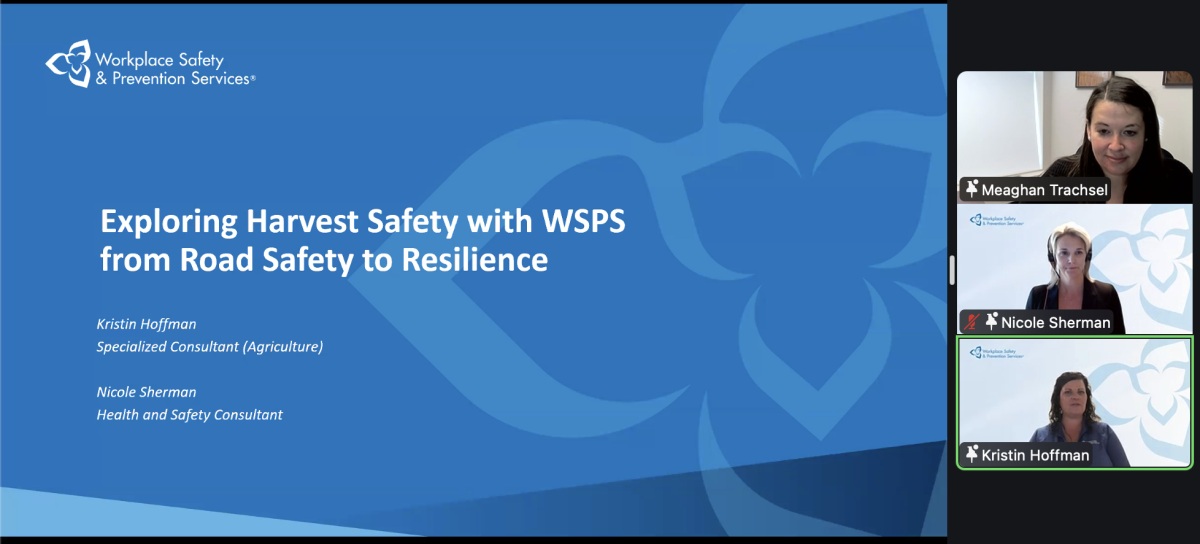Farm groups say they’re looking forward to movement on some or all of the farming-related points in last night’s federal Speech from the Throne, but also wonder about the government’s plans on issues left unmentioned.
The speech, delivered Tuesday evening by Governor General Michaelle Jean on the Tory government’s behalf, included brief mentions of several ag policy initiatives and other issues relevant to farmers, including:
- the new Growing Forward agricultural framework, replacing the soon-to-expire Agricultural Policy Framework (APF) and providing “stable, predictable and bankable support for farm families;”
- federal promotion of biofuels;
- “strong” support for the supply management system, as now used in the dairy, egg and poultry sectors;
- enacting “marketing choice” for Prairie barley growers — as per farmers’ vote in the barley plebiscite earlier this year — by ending the mandated single-desk marketing system operated by the Canadian Wheat Board (the government attempted to do so by regulation this summer, in a move that wound up blocked by a court ruling that Ottawa will appeal);
- new measures to ensure food and product safety, allowing Canadians “the same standards of quality from imported goods (they expect) from products made at home;”
- consideration of “how to use federal trade and commerce power” to improve interprovincial trade and remove existing barriers;
- a domestic carbon emissions trading market (though it’s not yet clear how, or if, farmers can directly take part by trading in credits earned for the carbon they sequester in cropland via improved management practices); and
- a pledge to “keep advancing Canada’s trade interests in the Americas and around the world to open up new markets for Canada’s innovators,” citing, for example, the recent move to secure a deal with the European Free Trade Association (whose members include Norway, Switzerland, Iceland and Liechtenstein).
Read Also

Exploring Harvest Safety
Kristin Hoffman of WSPS explains measures for increased farm safety around harvest season
While he said it was a good sign to have agriculture directly addressed in the speech, Canadian Federation of Agriculture president Bob Friesen said it didn’t speak to several of the CFA’s priorities, such as the fact that the Growing Forward framework isn’t yet completed and the process of drafting programs is “moving very slowly.”
The CFA also hoped to see action on profitable market access for livestock producers, and on flexibility within federal funding for regional farm programming, as well as action on regulations for “Product of Canada” claims and branding and promotion for a “grown in Canada” food label, Friesen said.
Friesen, who farms at Wawanesa, Man., also said the CFA was also concerned about the Tories’ emphasis on removing the single desk for Prairie barley. “Of all the issues in agriculture the government needs to address, this is hardly a priority,” he said.
B.C. grain farmer Ross Ravelli, president of the Grain Growers of Canada, said in a release that farmers have heard promises before and will be watching “to ensure there are actual deliverables moving ahead in each of these policy areas.”
However, he also added that there was no mention of Bill C-58, which has yet to be reintroduced in Parliament. The bill would amend the Canada Transportation Act to, among other things, improve dispute resolution between shippers and railways, provide for recourse against unreasonable charges for incidental services, and require 60 days’ notice by railways for closure of a producer car loading site.
National Farmers Union president Stewart Wells said the speech indicates the government is unwilling to change direction. “Policies that have reduced the number of farmers, especially young farmers, in Canada, are simply reinforced in this throne speech,” he said in a release.
Wells, who farms at Swift Current, Sask., also questioned the wisdom of government-promoted biofuels, which he said may create more problems than solutions.
Given its plans for Prairie barley, Wells also questioned the government’s commitment to supply management, which he said he suspects to be “very superficial, given its past record at the World Trade Organization talks. They’re paying lip service to supply management because they realize it’s a vote-getter in Quebec and Ontario.”
On the other hand the Western Canadian Wheat Growers Association applauded the nod to “marketing choice” but president Cherilyn Jolly-Nagel, a Saskatchewan farmer, said the group is “disappointed the government appears to have abandoned efforts to obtain greater trade liberalization on the world stage.
“The throne speech indicated the federal government would defend supply management but gave no indication that it would advance the interests of the 90 per cent of Canadian farmers whose income depends on access to export markets,” she said in a release.














